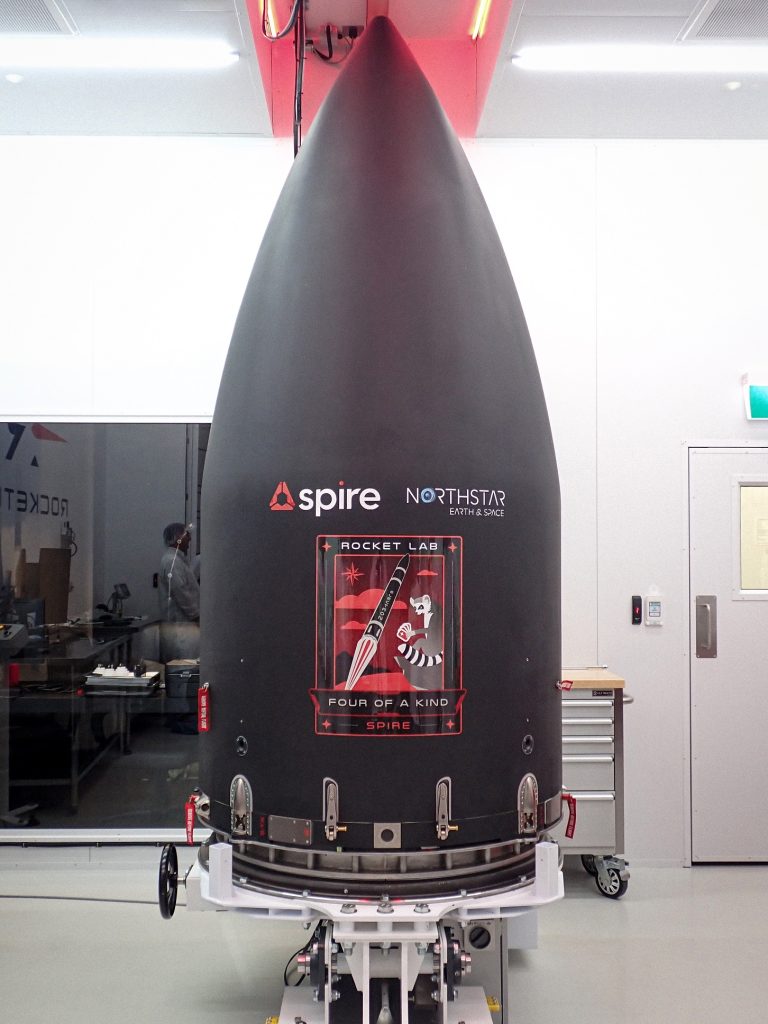UPDATE: Rocket Lab launched its first mission of 2024
11th Jan 2024
Rocket Lab have announced their first launch window for 2024. The US-based launch provider will endeavour to place four Space Situational Awareness (SSA) satellites into orbit via their Electron launch vehicle. Labelled ‘Four of a Kind’, the mission will be delivered on behalf of Spire Global and their customer, Northstar.
However, there is a secondary aspect to the mission: Rocket Lab is also aiming to salvage Electron’s first-stage. The US company is attempting to turn Electron into a reusable spacecraft and recovering the first-stage will allow for in depth analysis to inform their future plans.
Rocket Lab CEO and founder, Peter Beck, commented in a statement: “with each recovery mission we iterate toward Electron reusability and with recent launches we’ve made significant leaps forward with more successful splashdowns, recoveries and the first launch of a pre-flown Rutherford engine.”
Update: 2nd February
Rocket Lab launched 4 private satellites from Rocket Lab’s New Zealand launch site on the 31st January at 1:34 a.m. EST (0634 GMT; 7:34 p.m. local New Zealand time).
Four satellites for Montreal company NorthStar Earth & Space were successfully placed into their designated orbit, a circular trajectory situated 330 miles (530 kilometers) above Earth. The deployment occurred approximately 52 minutes after the launch.
Additionally, there was a secondary goal: to execute a soft Pacific Ocean splashdown of the first stage of the 59-foot-tall (18 meters) Electron rocket, facilitated by parachutes. This goal was accomplished as well. The booster touched down in the water 17 minutes after liftoff, remaining in good condition during its return journey. A recovery boat promptly headed to the splashdown site to retrieve the rocket, transporting it back to shore for thorough inspection and analysis.
Rocket Lab’s First Launch of 2024: The Four of a Kind Mission

Excitement is brewing for Rocket Lab’s first launch window. The company stated the launch will take place: “no earlier than January 18 between 19:15-20:00 NZT”. Despite last year’s setback when Electron experienced a rare electrical surge causing the rocket’s grounding, repairs have been finalised, FAA approval has been sought, and Electron is ready for launch. Live streams are yet to be confirmed. But in all likelihood, Rocket Lab will stream the event on their social channels and website.
Electron’s 43rd launch, and the beginning of their 2024 sold-out launch schedule, is the Four of a Kind mission, where Rocket Lab will transport four SSA satellites to orbit. Notably, these satellites will provide – for the first time – simultaneous near-Earth orbit monitoring. Spire, a space analytics company who are actively investing in Scotland’s space sector, built the satellites on Northstar’s behalf. They will also operate them once in orbit.
Rocket Lab said: “[the four satellites will provide] radically enhanced level[s] of SSA services to the global satellite community, with timely and precise information for space object detection, tracking, orbit determination, collision avoidance, navigation, and proximity alerts.”
Rocket Lab’s Second Mission: Retrieving Electron’s Discharged First-Stage
After launching the four SSA satellites, Rocket Lab will then attempt to recoup Electron’s first-stage after it crashes back to Earth. As such, the retrieval mission will be essential to Rocket Lab’s plans to make Electron fully reusable.
This is not the first time, however, that Rocket Lab has recovered a part of Electron post launch. In late 2021, they fished one of the rocket’s boosters out the ocean, in the same fashion expected for their upcoming recovery effort. In 2023 also, Rocket Lab undertook their “Baby Come Back” mission to once again recover Electron’s first-stage.
For the Four of a Kind launch, the rocket will take flight and separate its first-stage. Rocket Lab said they will keep the mission controlled through an equipped parachute that will aid its reentry. From there, it will safely drift back to Earth, landing 700km away from their New Zealand launch site. At this point, Rocket Lab’s “recovery vessel will extract the stage from the [Pacific Ocean]”. Finally, the first-stage will be transported to their facility for “detailed analysis”.







Thank you for your comment! It will be visible on the site after moderation.